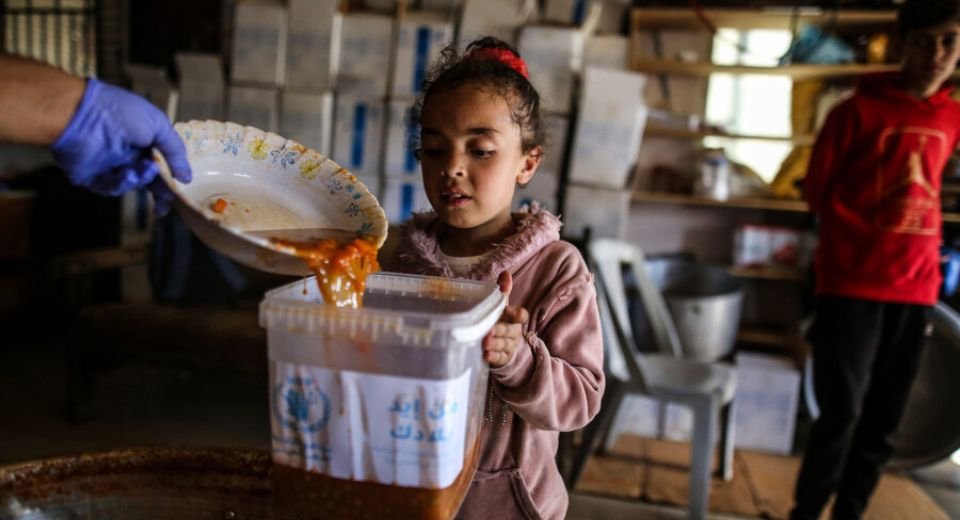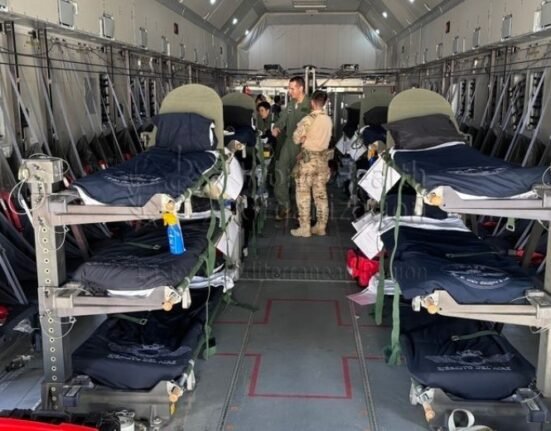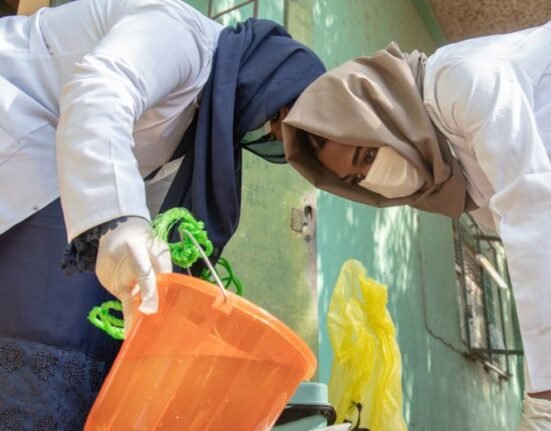HQ Team
March 19, 2024: The entire population in the Gaza Strip, 2.23 million, is facing food insecurity and by mid-July half of the residents may experience catastrophic hunger, according to a report.
An analysis released by the Integrated Food Security Phase Classification (IPC) — a multi-partner initiative for improving food security and nutrition analysis and decision-making — placed the situation at Phase-5, the most severe level in acute food insecurity scale.
The IPC classification is used by government and UN agencies, civil society, non-governmental organisations, and other stakeholders to determine the severity and magnitude of food insecurity.
“The IPC announcement reflects the dire situation that the people of Gaza are facing,” said WHO Director-General Dr Tedros Adhanom Ghebreyesus.
‘More than a million’
“Before this crisis, there was enough food in Gaza to feed the population. Malnutrition was a rare occurrence. Now, people are dying, and many more are sick.
“Over a million people are expected to face catastrophic hunger unless significantly more food is allowed to enter Gaza.”
The IPC analysis conducted in December 2023 warned of a risk that famine may occur by the end of May 2024 if an immediate cessation of hostilities did not happen.
Since December, the conditions necessary to prevent famine have not been met and the latest evidence confirms that famine is imminent in the northern governorates and is projected to occur anytime between mid-March and May 2024.
Effect on children
Between mid-March and mid-July, half of the population of the Gaza Strip (1.11 million people) is expected to face catastrophic conditions (IPC Phase 5), the most severe level in the IPC Acute Food Insecurity scale.
“This is an increase of 530,000 people (92%) compared to the previous analysis,” in December, according to an IPC statement. It is based on the assumption of an escalation of the conflict including a ground offensive in Rafah, a “most likely scenario.”
According to a WHO statement without a significant and immediate increase in deliveries of food, water and other essential supplies, conditions will continue deteriorating.
Before the recent months’ hostilities, 0.8% of children under 5 years of age were acutely malnourished. Today’s report shows that as of February in the northern governorates, that figure is between 12.4 and 16.5%.
Skipping meals
Virtually all households are already skipping meals every day and adults are reducing their meals so that children can eat.
The current situation will have long-term effects on the lives and health of thousands. Right now, children are dying from the combined effects of malnutrition and disease, the WHO stated.
WHO and partners have been carrying out high-risk missions to deliver medicines, fuel and food for health workers and their patients, “but our requests to deliver supplies are often blocked or refused.”
Damaged roads and continuous fighting, including in and close to hospitals, mean deliveries are few and slow. “When our missions reach hospitals, we meet exhausted and hungry health workers who ask us for food and water.
International intervention
“We see patients trying to recover from life-saving surgeries and losses of limbs, or sick with cancer or diabetes, mothers who have just given birth, or newborn babies, all suffering from hunger and the diseases that stalk it,” WHO stated.
Famine can be halted—both in the immediate term and it requires urgent and proactive measures from parties to the conflict and the international community.
“They must immediately curb the rapidly escalating hunger crisis in the Gaza Strip, garner political support to put an end to the hostilities, mobilize necessary resources and ensure the safe delivery of humanitarian aid to the people of Gaza.”
In the absence of measures to cease hostilities and provision of more humanitarian access, famine is imminent, said Food and Agriculture Organization’s Deputy Director-General Beth Bechdol.
“It could already be occurring. Immediate access is needed to facilitate delivery of urgent and critical assistance at scale,” she said.








